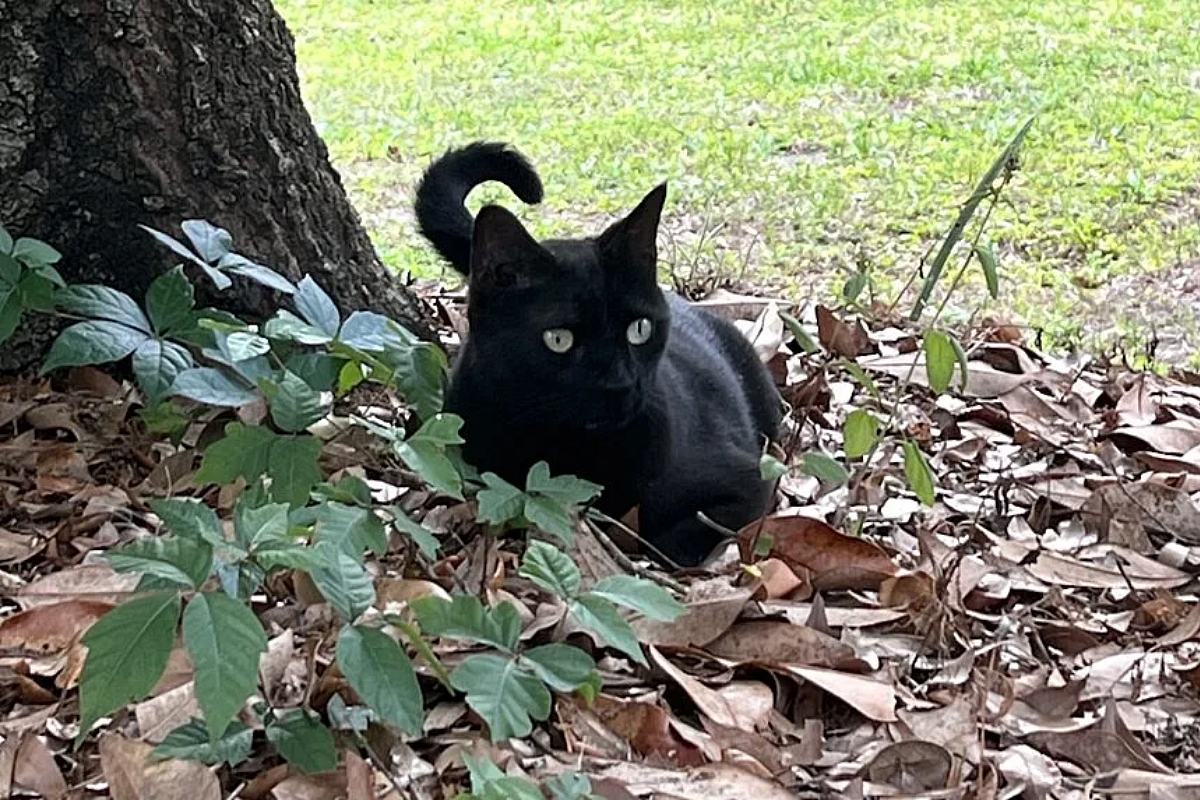Florida House Cat's Latest Conquest Yields New Virus Discovery
By Carole Tanzer Miller HealthDay Reporter
 via HealthDay
via HealthDayTHURSDAY, July 17, 2025 — Florida virologist John Lednicky couldn’t have a more devoted research partner than his sleek black house cat Pepper.
Pepper, an avid hunter who often leaves "gifts" for his people, made news last year for his role in helping detect the arrival in the U.S. of an exotic germ called jeilongvirus. Now, he’s at it again.
This time, a dead Everglades short-tailed shrew that Pepper carted home was found to harbor a previously unidentified strain of orthoreovirus.
Viruses in this family not only infect animals, including white-tailed deer and bats, but also humans.
Their effects on people aren’t yet clear, according to Lednicky. But they have been linked to rare reports of encephalitis, meningitis and gastroenteritis in kids.
"We need to pay attention to orthoreoviruses, and know how to rapidly detect them," said Lednicky, a member of the Emerging Pathogens Institute at the University of Florida in Gainesville.
He and his colleagues recently published the upshot of Pepper’s latest conquest in the journal Virology.
As Lednicky did with a dead mouse Pepper dropped at his feet in May 2021, he took the dead shrew to the lab. He wanted to see if it might be carrying the deer mulepox virus, a focus of ongoing work in his lab.
Instead, it had an orthoreovirus never before identified.
"There are many different mammalian orthoreoviruses and not enough is known about this recently identified virus to be concerned," Emily DeRuyter, the doctoral candidate credit as lead author of the new paper, said in a university news release.
"Mammalian orthoreoviruses were originally considered to be 'orphan' viruses, present in mammals including humans, but not associated with diseases," she said. "More recently, they have been implicated in respiratory, central nervous system and gastrointestinal diseases."
The latest discoveries in Lednicky’s labs follow earlier research published by their team about novel viruses found in white-tailed deer raised on farms.
Lednicky said the discovery of new viruses isn’t surprising, given the ability of viruses to change.
"I’m not the first one to say this, but essentially, if you look, you’ll find," he said in a news release, "And that’s why we keep finding all these new viruses."
He said two different types of orthoreovirus can infect a host cell. Their genes then mix, creating a brand new virus.
Lednicky’s team isolated the first orthoreovirus found in a deer in 2019.
Its genes were nearly the same as an orthoreovirus found in farmed mink in China and a sick lion in Japan. Experts suspect that some components of their feed may have originated from the same manufacturer.
DeRuyter and Lednicky said more research is needed to understand how orthoreoviruses are spread and how sick they could make peoploe and pets. It’s also not clear how common they are.
Specifically, they want to learn more about how the virus — dubbed type 3 strain UF-1 — affects the blood and immune systems.
For his part, Pepper seems to be A-OK after his latest conquest. He has no signs of illness and, Lednicky suspects he’ll continue supplying new specimens for his lab.
"This was an opportunistic study," he said. "If you come across a dead animal, why not test it instead of just burying it? There is a lot of information that can be gained."
Sources
Disclaimer: Statistical data in medical articles provide general trends and do not pertain to individuals. Individual factors can vary greatly. Always seek personalized medical advice for individual healthcare decisions.
Source: HealthDay
Posted : 2025-07-18 06:00
Read more

- Cumberland Pharmaceuticals Receives FDA Fast Track Designation for its Ifetroban Duchenne Muscular Dystrophy Program
- FDA Approves Label Update for Kite’s Yescarta for Relapsed/Refractory Primary Central Nervous System Lymphoma
- Drug-Resistant Salmonella Linked to Moringa Supplement
- Risk Factors Associated With Child Food Allergy Identified
- U.S. Food and Drug Administration Accepts Bristol Myers Squibb's New Drug Application for Iberdomide in Patients with Relapsed or Refractory Multiple Myeloma
- Short-Term Surgical Outcomes at Rural Facilities Similar to Those in More Distant, Urban Facilities
Disclaimer
Every effort has been made to ensure that the information provided by Drugslib.com is accurate, up-to-date, and complete, but no guarantee is made to that effect. Drug information contained herein may be time sensitive. Drugslib.com information has been compiled for use by healthcare practitioners and consumers in the United States and therefore Drugslib.com does not warrant that uses outside of the United States are appropriate, unless specifically indicated otherwise. Drugslib.com's drug information does not endorse drugs, diagnose patients or recommend therapy. Drugslib.com's drug information is an informational resource designed to assist licensed healthcare practitioners in caring for their patients and/or to serve consumers viewing this service as a supplement to, and not a substitute for, the expertise, skill, knowledge and judgment of healthcare practitioners.
The absence of a warning for a given drug or drug combination in no way should be construed to indicate that the drug or drug combination is safe, effective or appropriate for any given patient. Drugslib.com does not assume any responsibility for any aspect of healthcare administered with the aid of information Drugslib.com provides. The information contained herein is not intended to cover all possible uses, directions, precautions, warnings, drug interactions, allergic reactions, or adverse effects. If you have questions about the drugs you are taking, check with your doctor, nurse or pharmacist.
Popular Keywords
- metformin obat apa
- alahan panjang
- glimepiride obat apa
- takikardia adalah
- erau ernie
- pradiabetes
- besar88
- atrofi adalah
- kutu anjing
- trakeostomi
- mayzent pi
- enbrel auto injector not working
- enbrel interactions
- lenvima life expectancy
- leqvio pi
- what is lenvima
- lenvima pi
- empagliflozin-linagliptin
- encourage foundation for enbrel
- qulipta drug interactions
